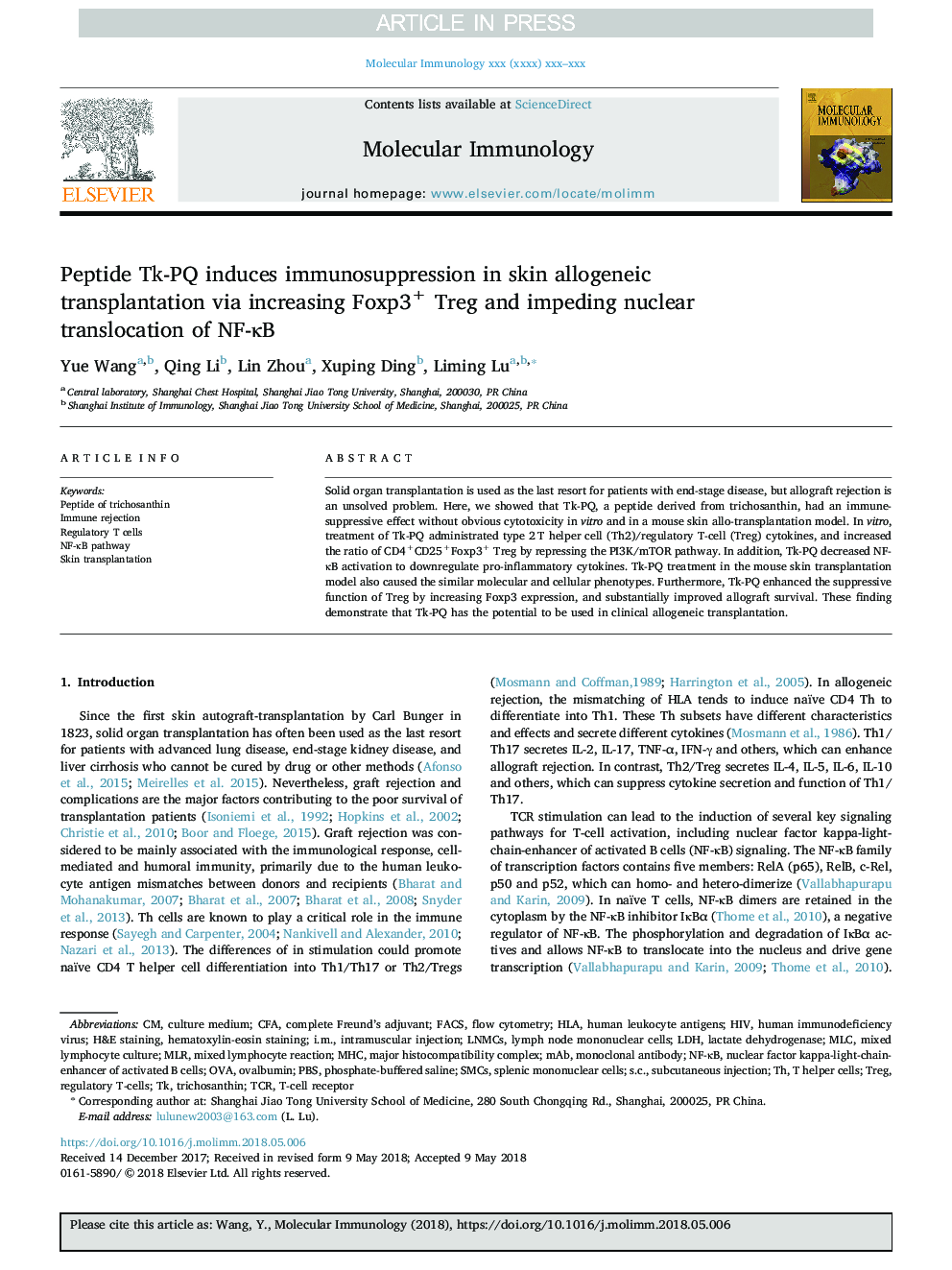| Article ID | Journal | Published Year | Pages | File Type |
|---|---|---|---|---|
| 9955388 | Molecular Immunology | 2018 | 11 Pages |
Abstract
Solid organ transplantation is used as the last resort for patients with end-stage disease, but allograft rejection is an unsolved problem. Here, we showed that Tk-PQ, a peptide derived from trichosanthin, had an immune-suppressive effect without obvious cytotoxicity in vitro and in a mouse skin allo-transplantation model. In vitro, treatment of Tk-PQ administrated type 2â¯T helper cell (Th2)/regulatory T-cell (Treg) cytokines, and increased the ratio of CD4+CD25+Foxp3+ Treg by repressing the PI3K/mTOR pathway. In addition, Tk-PQ decreased NF-κB activation to downregulate pro-inflammatory cytokines. Tk-PQ treatment in the mouse skin transplantation model also caused the similar molecular and cellular phenotypes. Furthermore, Tk-PQ enhanced the suppressive function of Treg by increasing Foxp3 expression, and substantially improved allograft survival. These finding demonstrate that Tk-PQ has the potential to be used in clinical allogeneic transplantation.
Keywords
NF-κBs.c.OVATregTCrSMCsMLRMLCH&E stainingmAbFACSPBSCFAcomplete Freund’s adjuvantregulatory T-cellsMonoclonal antibodyhuman leukocyte antigensHLAOvalbuminTrichosanthinintramuscular injectionSubcutaneous injectionimmune rejectionhematoxylin-eosin stainingT helper cellsRegulatory T cellsnuclear factor kappa-light-chain-enhancer of activated B cellsMixed lymphocyte cultureFlow cytometrylactate dehydrogenaseLDHMHCmajor histocompatibility complexPhosphate-buffered salineculture mediumNF-κB pathwayi.m.mixed lymphocyte reactionhuman immunodeficiency virusHIVSkin transplantationT-cell receptor
Related Topics
Life Sciences
Biochemistry, Genetics and Molecular Biology
Molecular Biology
Authors
Yue Wang, Qing Li, Lin Zhou, Xuping Ding, Liming Lu,
